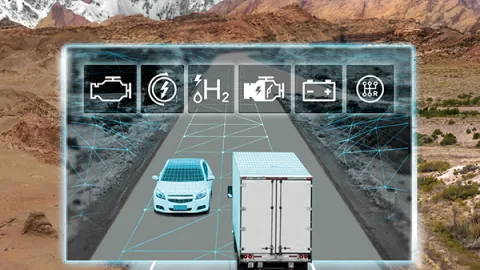
Automotive test engineers focused on electric powertrain development need to shift as many tests as possible to simulation, decreasing dependence on costly dynamometer and field testing, early in the development process. They need to validate and optimize their system design and software control algorithms with model-based simulation to decouple from other team schedules, increase test coverage, and lower the cost of finding and fixing bugs early on.The EV’s traction inverter (including its controller and connected electric motor) requires high-fidelity, complex, nonlinear behavior modeling to achieve simulation accuracy. An open and extensible test solution incorporating high-fidelity power electronics and electrical machine simulation addresses the above-mentioned needs. The Virtual Testbed™ for Battery Electric Vehicle is a signal-level, real-time simulation platform based on hardware in-the-loop hardware and FPGA technology that includes relevant AVL models. This system level solution covers drivability, operational efficiency, thermal management, and onboard diagnostics test cases by integrating multiple control units, such as the vehicle control unit and motor control unit.Join us to learn how model-based FPGA simulation and an integrated systems approach combine flexibility with off-the-shelf delivery.